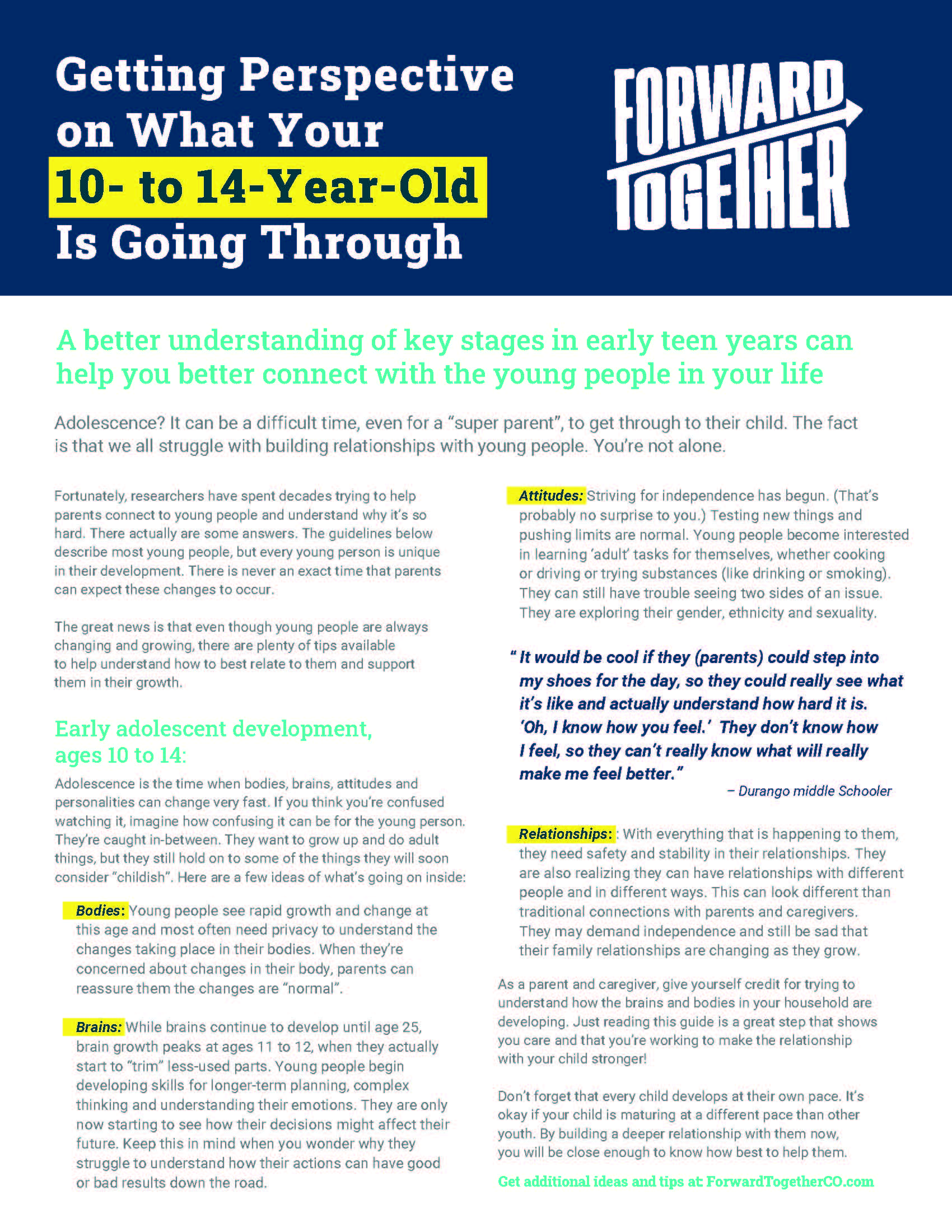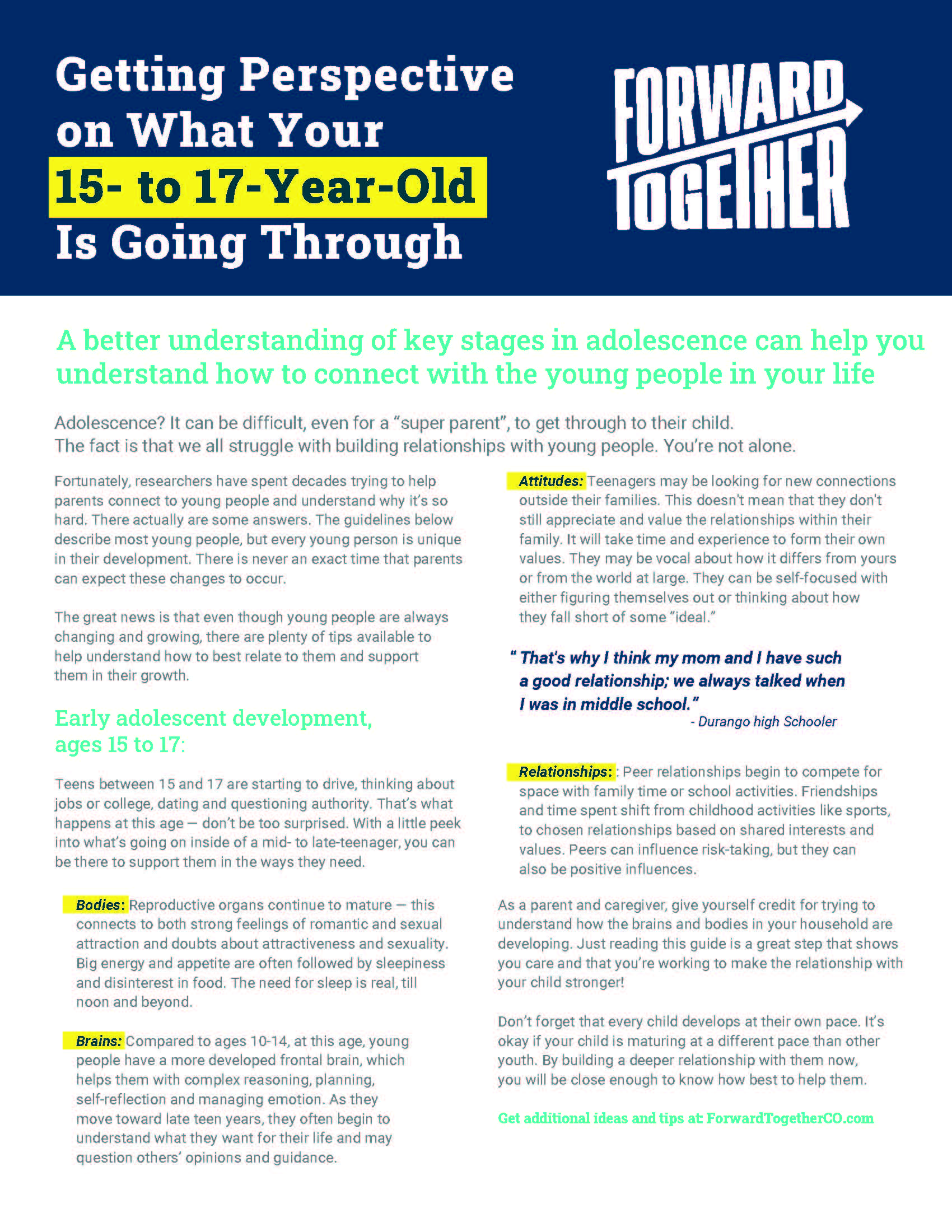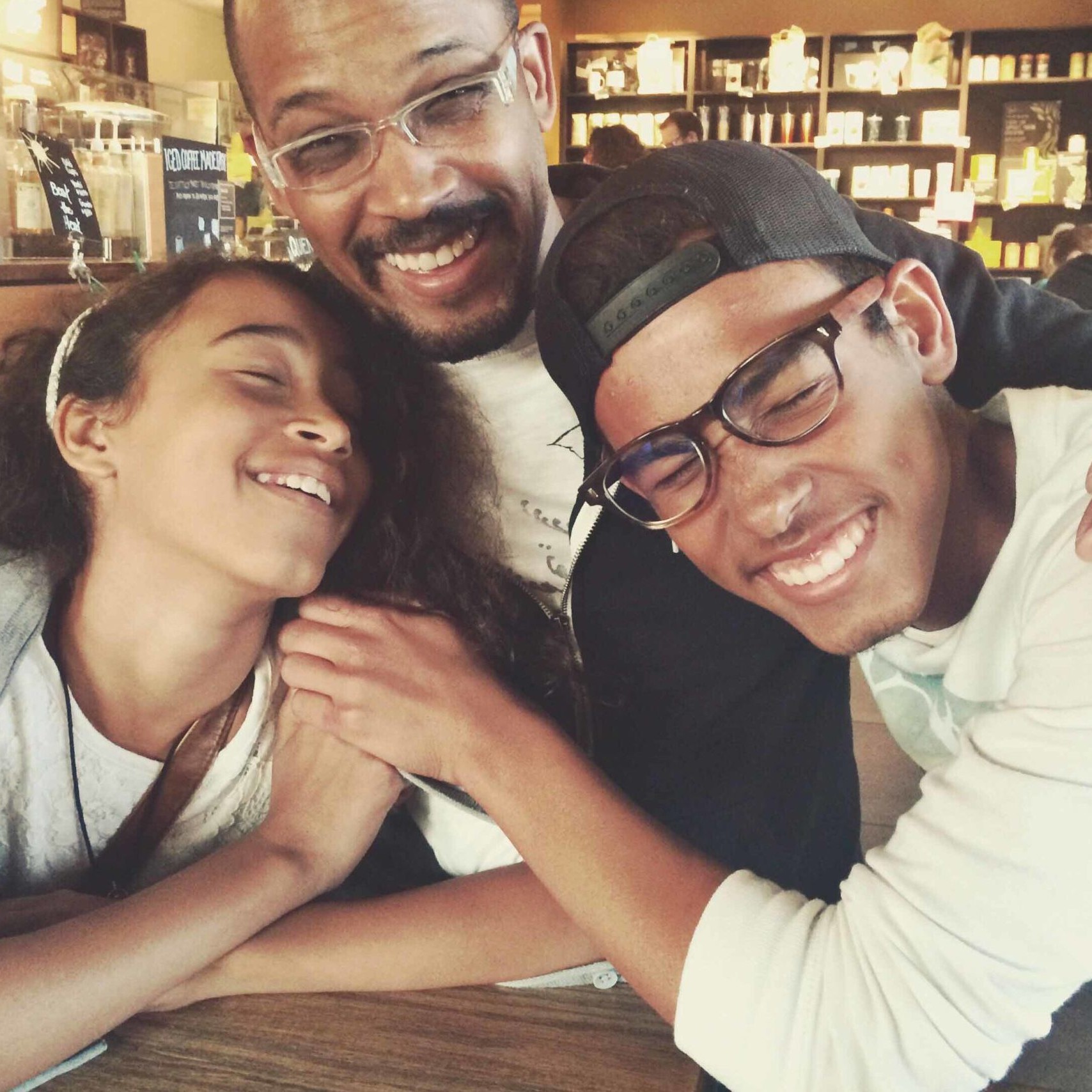Rapid brain and physical growth, increasing hormones and changes in everything from their voice to the amount of sleep they need — the pre-teen and teenage years have it all. Mentally and physically, these years can be challenging — for them and for you.
You’re not alone. Family and development experts say there are patterns across all growing kids. Knowing them might lead you to better understand what your teen is going through and how you can support them.
What happens to their bodies:
Young people experience rapid growth and change from 10 to 14, although girls often start puberty and growth spurts a year or two before boys. With all of these physical changes, teens can become very concerned about body privacy. You may want to show respect for their growing need for privacy by giving them some space, away from parents and siblings.
From 14 to 17, reproductive organs continue to mature for teens, which can lead to strong feelings of romantic and sexual attraction and doubts about their own attractiveness and sexuality. Energy and appetite are often followed by sleepiness and disinterest in food. The need for sleep is real, with teens sometimes staying in bed until noon or later. Knowing that sleep is a real need at this age might make it easier to let them stay in bed later than you might otherwise think to do.
What happens to their brains:
Brain growth peaks around age 11 or 12, and young people begin developing the ability to do longer-term planning, complex thinking and managing of their emotions. They’re starting to see how their decisions might affect their future — a good thing to keep in mind, if you ever wonder whether they can see the results of their actions down the road. As they approach their late teens, they often begin to develop a picture of their role in life and may question the roles others are trying to give them.
What happens to their interests and activities:
In case you hadn’t noticed, striving for independence begins between 10 and 14. Testing new things and pushing old limits are normal for teens during this important period of development. They might lose interest in things they once loved to do or play with and may even think of them as “childish”. Young teens also become interested in “adult” activities, like cooking, driving and even some we wish they wouldn’t, like drinking or smoking.
They also explore their sense of identity. They may question or think differently about everything that defines who they are, from gender and clothing to media, ethnicity and sexuality.
As they move toward 14 to 17 years, the chance to redefine themselves may also bring challenges to teens’ self-confidence.
Viewing the adult world they will eventually grow into, they consider who they are and who they’ll become. They may look for new connections outside their family, but this doesn’t mean that they don’t still appreciate and value the relationships within their family. They may be vocal about how their views differ from yours or from the world at large. During this period, teens can be self-focused on either figuring themselves out or how they fall short of some “ideal.”
Just know that all of this questioning is normal. Eventually, teens will sort through these different value systems and arrive at their own sense of who they are and what’s important to them. As they get a better sense of themselves, they can channel their newfound confidence into action, for themselves and for others.
Get Into Their World Through a Game
Want more practice entering the world of teens?
Play “From 10 to 25,” a storytelling game about adolescence. As you play, you will take on the role of a young person, explore new parts of life, encounter challenges, and get the support you need.





